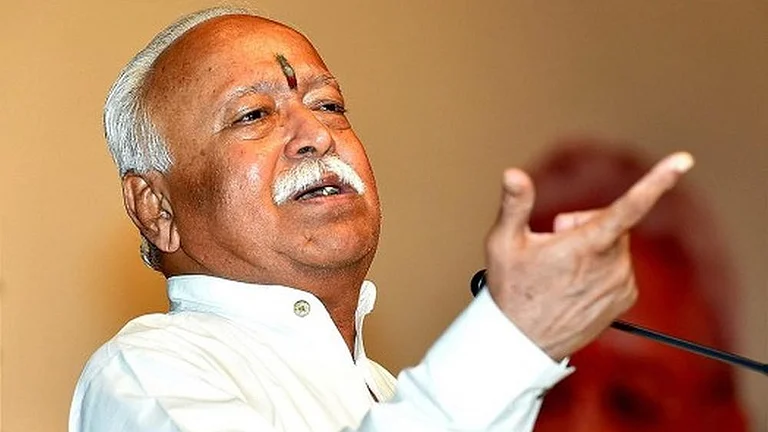The Indian Constitution is a federal Constitution in as much as it established what may be called a dual polity which will consist of the Union at the Centre and the States at the periphery each endowed with sovereign powers to be exercised in the field assigned to them respectively by the Constitution”.
- Dr B.R Ambedkar
‘India, that is Bharat, is a union of states…’
India’s brand of federalism remains to be unique. Without any mention in the Constitution, which was adopted on January 26, 1950, the country’s polity follows a federal structure that is supposed to apportion the legislative power between the Centre and the States. Describing India’s federal structure, Ambedkar remarked that when times are normal India is a federal structure but during emergencies, states assume a unitary character.
However, unlike what happens in a classical federal structure, where states are vested with more power than the Centre, it’s the other way around in India. The legislative powers assigned to the Union, in our federal schem0however, have primacy over the powers given to the states. And with this, the current times are increasingly seeing a threat to the federal structure of the government with restricted devolution of Central powers.
The quarrels and negotiations of everyday politics have been increasingly challenging the Constitutional rules which stand to destabilise any union between the states and the Centre. Rather, the recent rulings of the Central government have deepened the divide between the Centre and the State, while the Opposition even struggles to see any union among each other.
Despite being described as a ‘Unity in Diversity’, India has witnessed a growing obsession with ‘oneness’ of everything --- the idea of ‘One Nation, One Election’, ‘One Nation, One Tax’, One Nation, One Ration Card’, the push for ‘Union Civil Code’, propagating a ‘double-engine sarkar’ of the BJP, and the implemented GST and so on --- disregarding and undermining the very essence of the country’s federal structure eroding the fiscal and, therefore, economic policy space of State governments.
Though B R Ambedkar, the chairperson of the drafting committee, was cautious while replacing the word ‘Federation’ with ‘Union’ to invoke the ‘indestructible’ unity among differences and diversity, his next-generation compatriots started looking for the elusive ‘oneness’.
In 'Is One Nation, One Election A Threat To Federalism?', Abhik Bhattacharya explains how ‘One Nation, One Election’, the recent-most debated policy of the government is an attempt to undermine the federal principles that form the bedrock of the basic structure of the Constitution.
Supported by opinions of constitutional experts, federalism scholars and political leaders, the article argues that federalism may become the biggest casualty of the ‘oneness’ which is already straining the relationship between the states and the Centre.
Next, comes the debate of UCC. The Bharatiya Janata Party (BJP), which has largely pushed for the immediate common civil code, views it as an instrument of mitigating the ‘differences’ between communities (Hindu, Muslims, Sikhs, Christians, Scheduled Castes and Tribes) by yielding to one common code or law for governance. In 'Uniform Civil Code In India: Uniformity Or Conformity?', professor Tanvir Aeijaz says that for the BJP, uniformity is not the priority but it seeks conformity under the umbrage of ‘one nation, one law’ and demands for the UCC to be predicated on Hindu laws. In this high-pitch cacophony of UCC, he asks whether the common civil code does justice to a plurinational and multi-religious nation like India, it may not be the best option.
In the most recent context, the celebration of ‘nationalism’ through religious events also stirs up questions on the secular nature of the country, as enshrined in the Constitution. The ‘Ram Temple’ consecration on January 22 has been promoted as a day of “national celebration” and has been given the same podium as that of Independence Day. A country, which houses a diverse faith across states and regions, the question of the State’s participation in religion has once again fuelled the age-old discourse of secularism.
Secularism has rather become an abusive word in the last few decades. There are now petitions in the Supreme Court to remove the word ‘secular’ from the Preamble. “The net effect is an unprecedented assault on the rights of the Muslims and their shrinking representation in governments,” writes Ashutosh Bhardwaj in 'Does Secularism Have A Place In Ritualistic India?'. In his report, Bharadwaj quotes political analyst Abhay Kumar Dubey who remarks that secularism in India is facing a crisis, because fewer leaders can inculcate the spirit in the people. He warns, “Secularism as such has no future in India. It is condemned to exist either as a minoritarian or a majoritarian creed.” Harsh words, but if the Republic is to survive, a government is required that allows various faiths to coexist, a polity that does not seek votes for religion and a state that does not discriminate against its minorities.
Further, with financial policies, arguments have risen over the implementation of the Goods and Service Tax (GST) that has arguably compelled states to depend on the Centre for nearly half of all of their resources with little to no control over more than two-thirds of their revenues. Experts have argued that the new Tax policy has curbed a state's ability to raise its own revenues other than certain through sales taxes, which are exempted from GST.
On this Republic Day, as we come together to commemorate the Constitution of India, we ask, whether it’s time for India to enter into a new federal negotiation, or will the consistent political lure of centralisation drown the federal principles of our Constitution.





















